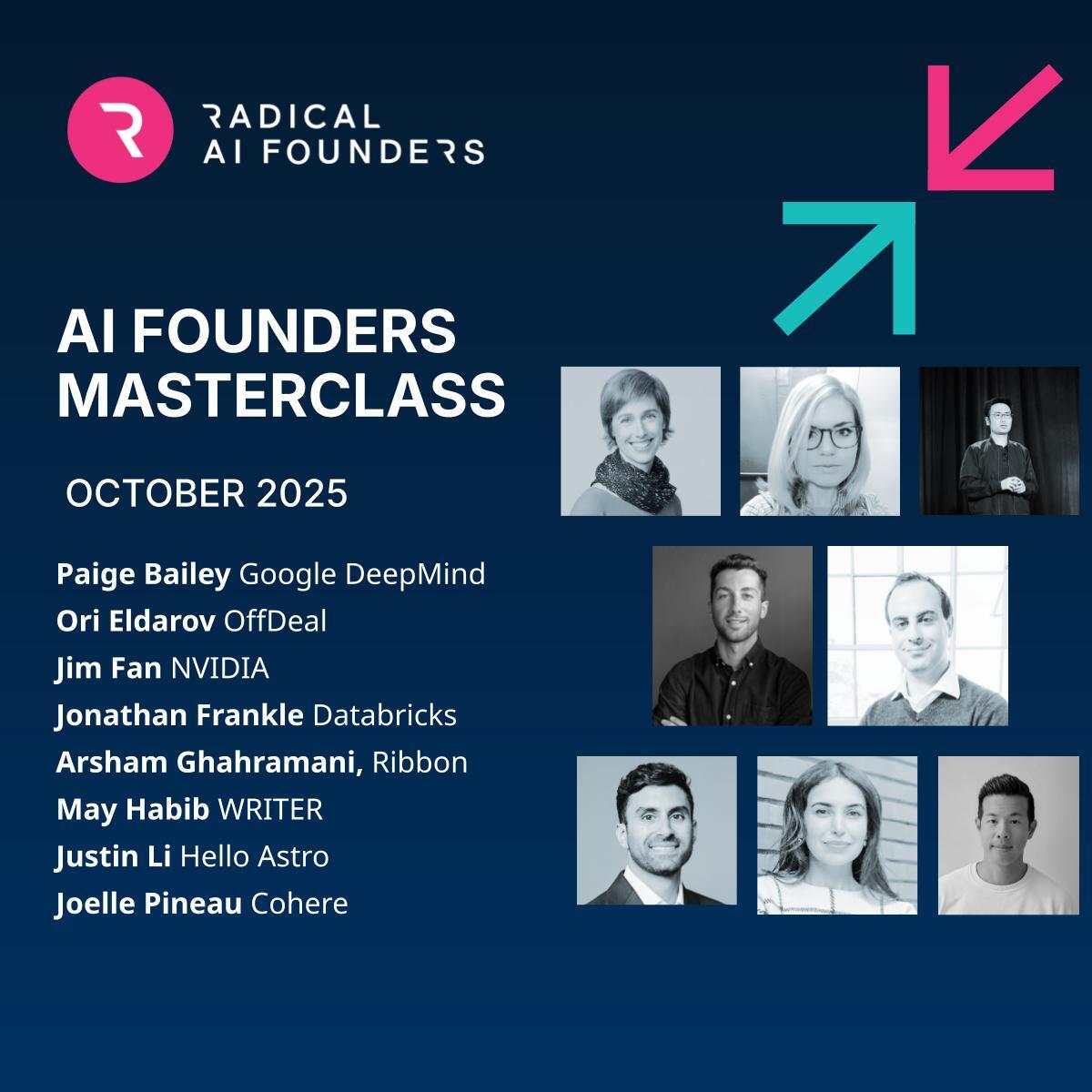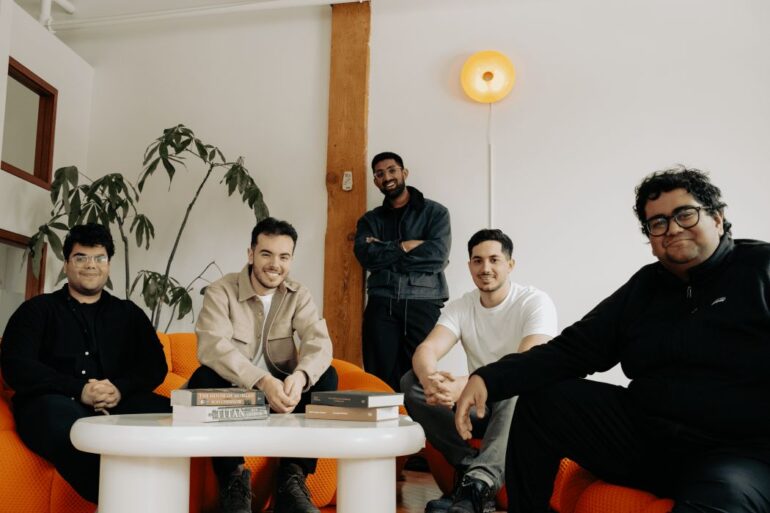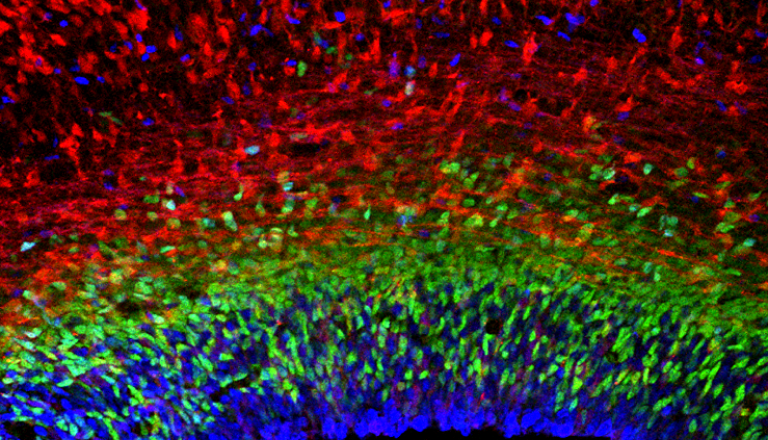Each fall, we host the four-week Radical AI Founders Masterclass, a program designed to inspire and equip aspiring technical entrepreneurs through live sessions and a global community.
This year, more than 400 participants joined from around the world, representing institutions including The Vector Institute, Stanford, Berkeley, MIT, Oxford, Cambridge, Mila, DeepMind, OpenAI, NVIDIA, AWS, Meta, and the University of Toronto. Eight speakers shared lessons spanning research, product, venture, and operations — tracing the arc of company building in the AI era.
From Research to Real-World Impact
The program opened with May Habib, co-founder and CEO of Radical Ventures portfolio company WRITER. She described WRITER’s journey to creating a full-stack platform built on custom models and private infrastructure, emphasizing two lessons: invest early in data advantage and stay close to real customer problems.
Joelle Pineau, Chief AI Officer at Cohere and former head of Meta’s FAIR Lab, spoke about moving from research environments to product deployment. She highlighted the importance of reproducibility, evaluation, and responsible scaling, noting that practical reliability matters as much as accuracy.
Jonathan Frankle, Chief AI Scientist at Databricks, shared his experience moving from academia to industry-scale experimentation, revisiting the lottery ticket hypothesis and how foundational research can shape large-scale training today.
Building with AI
Paige Bailey, AI Developer Experience Lead at Google DeepMind, led a hands-on Practical Lab on multimodal systems — illustrating how developers can build applications that reason across text, code, image, and audio. Her message: the future belongs to those who experiment boldly and treat AI tools as creative instruments.
In another Practical Lab, Ori Eldarov, CEO of OffDeal, outlined three principles of AI-native operations: provide deep context, embrace imperfection when speed matters, and choose tools compatible with model workflows. He emphasized that model failures often stem from missing context, not capability.
AI Storytelling
Justin Li, co-founder of Hello Astro and Creative Director at Google DeepMind’s Impact Accelerator, focused on storytelling as a founder’s design tool. Drawing on work with Cohere, Muon Space, and Google’s AI initiatives, he emphasized building product and narrative together, reminding founders that clarity is a competitive advantage.
Understanding Venture Capital
Radical Partner Sanjana Basu demystified how venture capital firms evaluate and support startups, explaining how funds raise, deploy, and guide companies. She stressed that investors look for clarity of vision, technical depth, and founder–market fit, and that strong pitches demonstrate conviction and deep understanding rather than polish alone.
Arsham Ghahramani, CEO and co-founder of Radical Ventures portfolio company Ribbon AI, shared the founder perspective, emphasizing transparency, momentum, and keeping investors close even before a formal raise. He encouraged founders to seek investors who understand their technical edge and collaborate deeply, noting that fundraising works best when it feels like “you’re already building together.”
The Next Frontier: Embodied Intelligence
In the final Masterclass session, Jim Fan, Director and Distinguished Research Scientist at NVIDIA, discussed the shift from understanding to action through embodied AI. Leading NVIDIA’s Generalist Embodied Agent Research (GEAR) team, he described pursuing ambitious problems with simple, elegant methods that can leverage diverse data sources. His message: the future of AI will be embodied, scalable, and shaped by systems that can learn and act in dynamic environments.
Looking Ahead
Across every session, one idea remained constant: meaningful AI comes from pairing technical insight with creativity, context, and real-world problem solving. The Masterclass aims to equip the next generation of AI builders with the knowledge, connections, and conviction to turn transformative ideas into the businesses of tomorrow.
For more from the Masterclass, listen to our recent Radical Talks episode featuring May Habib. Stay tuned for additional excerpts from this year’s speakers on the Radical Talks podcast in the weeks ahead.
AI News This Week
-
Nabla Bio's AI-Made Antibodies Look More and More Ready for Prime Time (Endpoints News)
Radical portfolio company Nabla Bio‘s latest AI model, JAM-2, is displaying breakthrough capabilities in de novo antibody design. The model successfully created drug-like antibodies against all 28 targets studied, with roughly half demonstrating high binding affinities and passing key developability criteria. JAM-2 represents the field’s first demonstration of AI producing lead-optimized antibody candidates without traditional laboratory work. A four-person team completed work that would typically require 80 people over six months, dramatically compressing antibody discovery timelines.
-
Radical Talks: Fei-Fei Li on Building Spatial Intelligence Podcast Episode is Now Live (Listen Now)
Our latest Radical Talks episode features a conversation with Fei-Fei Li, CEO and Co-founder of Radical Ventures portfolio company World Labs. Fei-Fei (who is also a Scientific Partner with Radical) explores why spatial intelligence and the ability to understand and generate true 3D environments remain the missing dimension in today’s generative systems. Following World Labs’ recent commercial launch of Marble, a generative world model that turns prompts into editable, downloadable 3D environments, Fei-Fei reflects on her journey from creating ImageNet to pursuing spatial intelligence as her new “North Star problem.”
-
These Small-Business Owners Are Putting AI to Good Use (WSJ)
Small businesses are rapidly adopting generative AI, with 58% now using the technology, up from 40% in 2024, according to a U.S. Chamber of Commerce survey. Unlike large corporations with dedicated AI strategy teams, small business owners are experimenting with practical applications. Owners report using AI for financial analysis, customer service automation, marketing content creation, and website development.
-
Introducing Navigator (Yutori)
Radical portfolio company Yutori unveiled Navigator, a state-of-the-art web agent that autonomously completes everyday online tasks like checking availability, comparing prices, and making reservations. Navigator achieves 78.7% success on Online-Mind2Web and 83.4% on the new Navi-Bench benchmark while being 2-3x faster than competing models. Powered by the Yutori n1 model, Navigator uniquely trains via reinforcement learning on live websites, not just simulated environments, enabling continuous real-world improvement.
-
Research: Intelligence per Watt: Measuring Intelligence Efficiency of Local AI (Stanford University/Together AI)
Researchers introduce “intelligence per watt” (IPW), a metric measuring AI model accuracy per unit of power consumption, to assess whether local devices can viably handle inference workloads currently served by cloud infrastructure. Across the board, IPW improved 5.3× over 2 years through advances in model architecture and hardware. Proprietary models served on large-scale cloud infrastructure still maintain an edge over local inference for reasoning tasks.
Radical Reads is edited by Ebin Tomy (Analyst, Radical Ventures)





